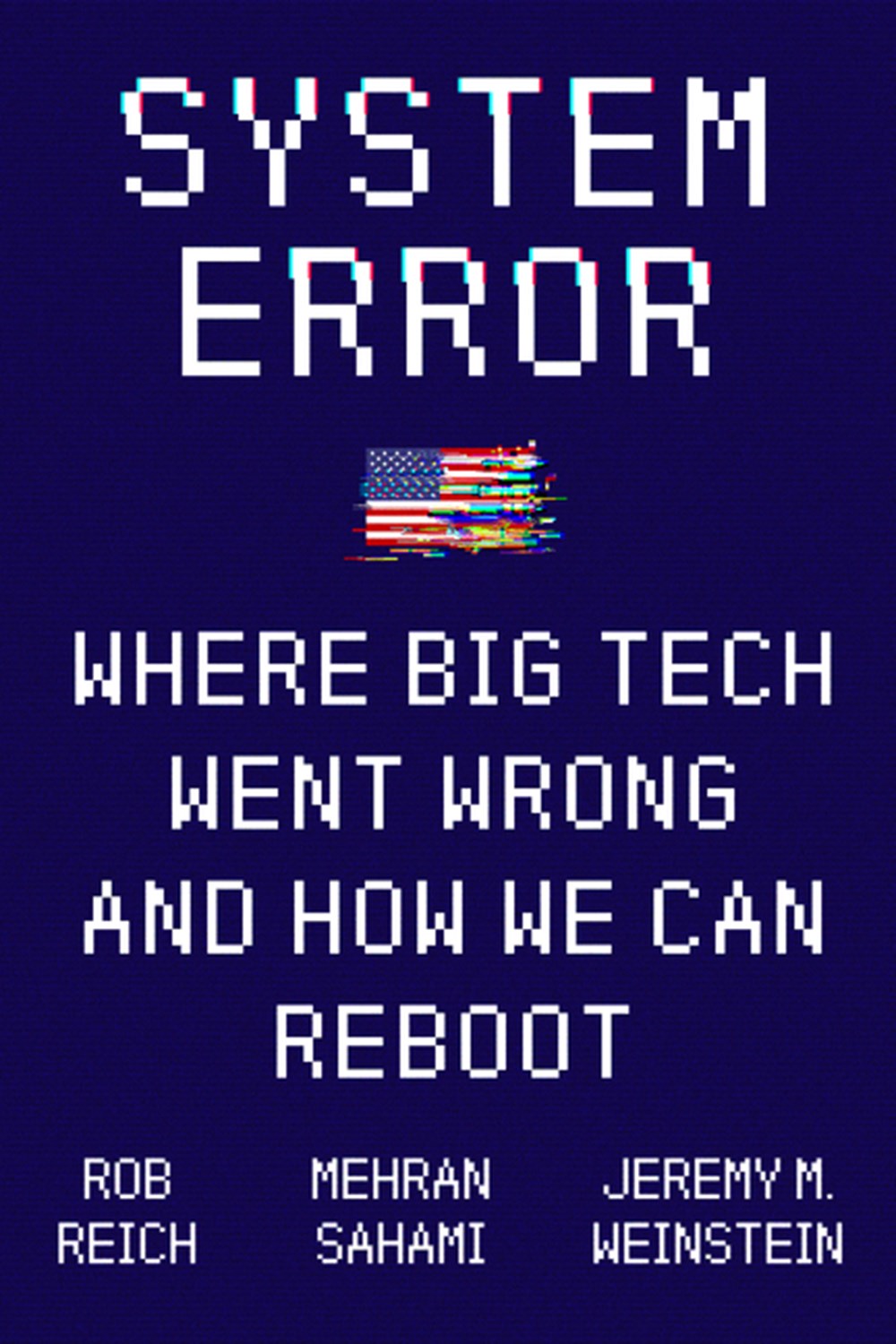System Error: Where Big Tech Went Wrong and How We Can Reboot
 In no more than the blink of an eye, a naive optimism about technology’s liberating potential has given way to a dystopian acceptance of a Big Tech behemoth that brings with it biased algorithms, surveillance capitalism, and job-displacing robots. Too many of us have simply accepted a future designed for us by technologists, the venture capitalists who fund them, and the politicians who give them free rein.
In no more than the blink of an eye, a naive optimism about technology’s liberating potential has given way to a dystopian acceptance of a Big Tech behemoth that brings with it biased algorithms, surveillance capitalism, and job-displacing robots. Too many of us have simply accepted a future designed for us by technologists, the venture capitalists who fund them, and the politicians who give them free rein.
It doesn’t need to be this way.
System Error: Where Big Tech Went Wrong and How We Can Reboot (September 7, 2021; Harper), by Rob Reich, Mehran Sahami, and Jeremy M. Weinstein, exposes the roots of our current predicament: how Big Tech’s relentless focus on optimization reinforces discrimination, erodes privacy, displaces workers, and pollutes the information we get. This mindset prioritizes what companies care about over the values that we as a democratic society might choose to embrace. Even well-intentioned optimizers often fail at measuring what is truly meaningful, and when their creative disruptions achieve great scale, we find their agenda imposed on every part of our world.
Armed with an understanding of how technologists think and exercise their power, three Stanford professors—a philosopher working at the intersection of tech and ethics, the director of the undergraduate computer science program who was also an early Google engineer, and a political scientist who served under Barack Obama—reveal how we can hold that power to account. Troubled by the values that permeate the university and Silicon Valley, these professors worked together to chart a new path forward, creating a popular course to transform how tomorrow’s technologists might better approach their profession. Now, as the dominance of Big Tech becomes an explosive societal conundrum, they share their provocative insights and concrete solutions to help everyone understand what is happening, what is at stake, and what we can do to control technology instead of letting it control us.
ABOUT THE AUTHORS
Rob Reich is a philosopher who directs Stanford University’s Center for Ethics in Society and is associate director of its new Institute for Human-Centered Artificial Intelligence. He is a leading thinker at the intersection of ethics and technology, a prize-winning author, and has won multiple teaching awards. He helped to create the global movement that is #GivingTuesday and serves as chair of its board.
Mehran Sahami was recruited to Google in its start-up days by Sergey Brin and was one of the inventors of email spam-filtering technology while still in graduate school. With a background in machine learning and Artificial Intelligence, he returned to Stanford as a computer science professor in 2007 and helped redesign the undergraduate computer science curriculum. He is one of the instructors of Stanford’s massive introductory computer programming course taken by nearly 1500 students a year. Mehran is also a limited partner in several VC funds and serves as an advisor to high-tech start-ups.
Jeremy M. Weinstein went to Washington with President Obama in 2009. A key staffer in the White House, he foresaw how new technologies might remake the relationship between governments and citizens and launched Obama’s Open Government Partnership. When Samantha Power was appointed U.S. Ambassador to the United Nations, she brought Jeremy to New York, first as her Chief of Staff and then as her Deputy. He returned to Stanford in 2015, as a professor of political science, where he now leads Stanford Impact Labs.
This giveaway is being brought to you by Harper, an imprint of HarperCollins Publishers.




